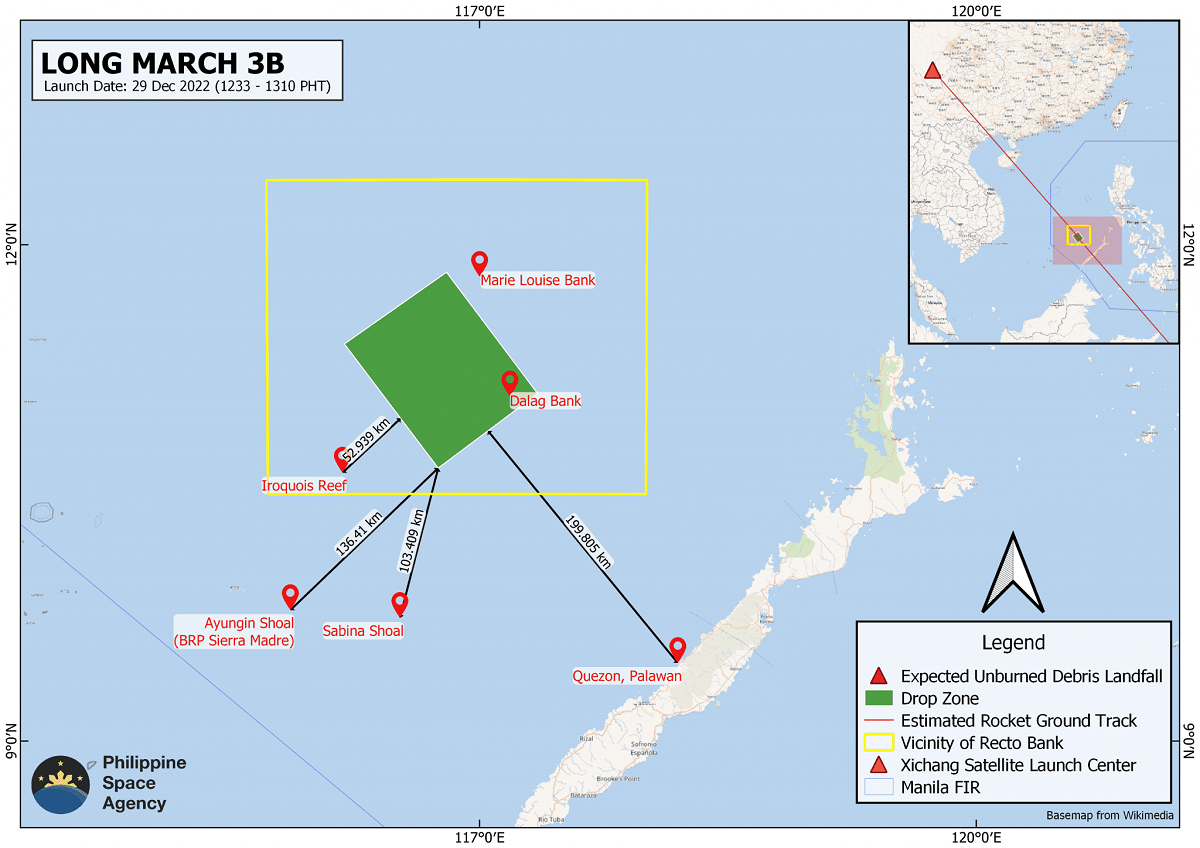PhilSA, CAAP caution public vs. falling Chinese rocket debris

The Philippine Space Agency (PhilSA) and the Civil Aviation Authority of the Philippines (CAAP) are urging the public to take precautionary measures due the expected falling debris from China’s rocket launch.
The PhilSA said the Long March 3B rocket was scheduled for launch on December 29 between 12:33 p.m. and 1:10 p.m. (Philippine time) from the Xichang Satellite Launch Center in Xichang, Sichuan Province, China.
Based on the Notice to Airmen (NOTAM) issued by the Civil Aviation Administration of China (CAAC) to CAAP, the expected unburned debris is projected to fall within a drop zone area located within the vicinity of Recto bank, approximately 137 kilometers from Ayungin Shoal and 200 kilometers from Quezon, Palawan.
Because of this CAAP issued NOTAM for aerospace flight activities effective December 30, 2022 at 12 p.m. until January 2, 2023 at 6 p.m. advising the closure of several area navigation (RNAV) routes.
PhilSA said the expected unburned debris include rocket boosters and payload fairing.
“The unburned debris is designed to be discarded as the rocket enters outer space. While not projected to fall on land features or inhabited areas within the Philippine territory, falling debris poses danger and potential risk to ships, aircraft, fishing boats, and other vessels that will pass through the drop zone,” the agency said in a statement.
PhilSA said the actual drop zone area may change because of various factors such as the Earth’s rotation, weather, and climate conditions.
The agency said the debris may also possibly float around the area and wash toward nearby coasts.
“Furthermore, the possibility of an uncontrolled re-entry to the atmosphere of the rocket’s upper stages returning from outer space cannot be ruled out at this time,” it said.
“PhilSA reiterates its earlier public advisory to immediately inform local authorities if suspected debris is sighted. PhilSA also cautions the public against retrieving or coming in close contact with these materials that may contain remnants of toxic substances such as rocket fuel,” it added. —Richa Noriega/KBK, GMA Integrated News




